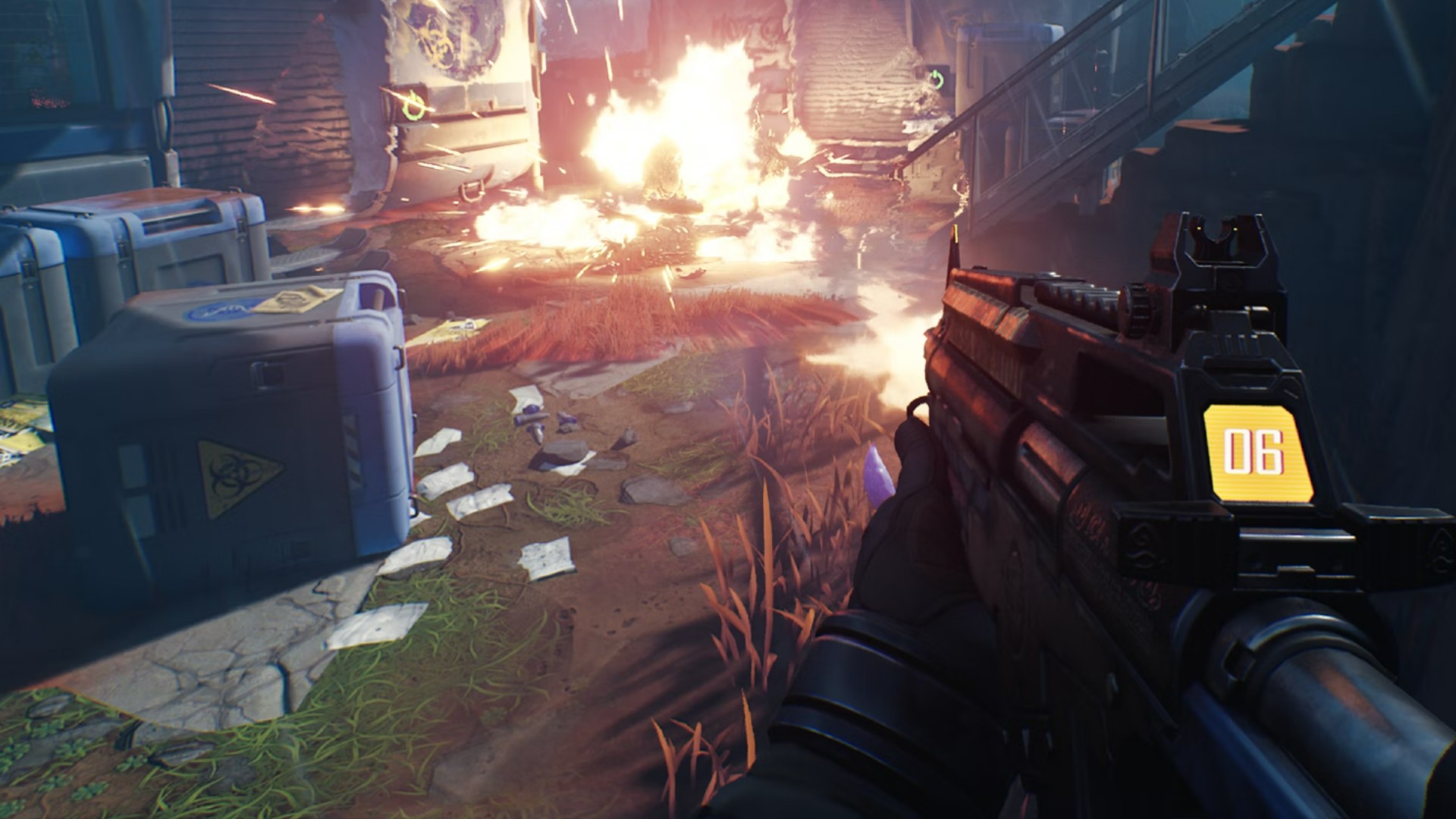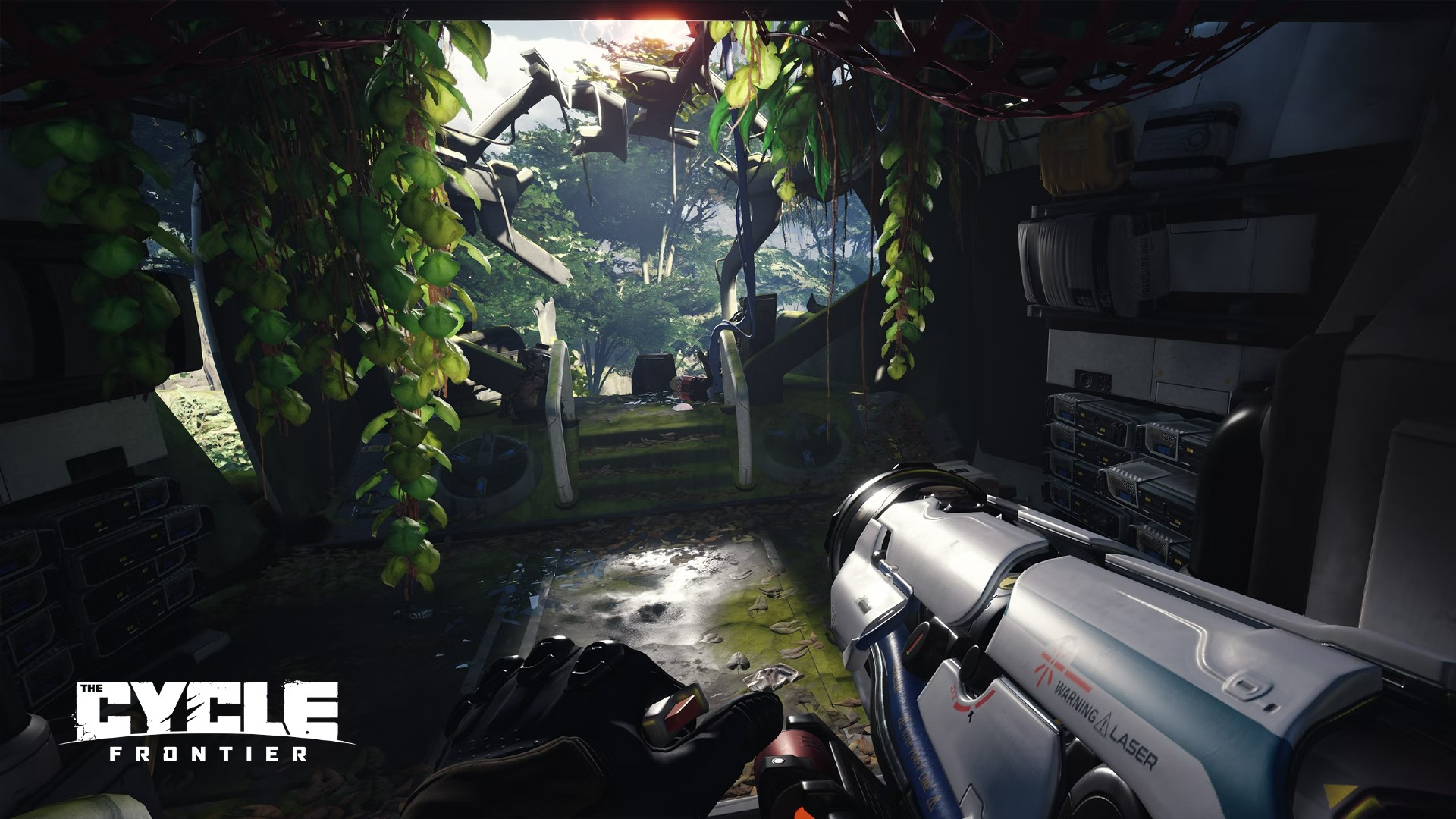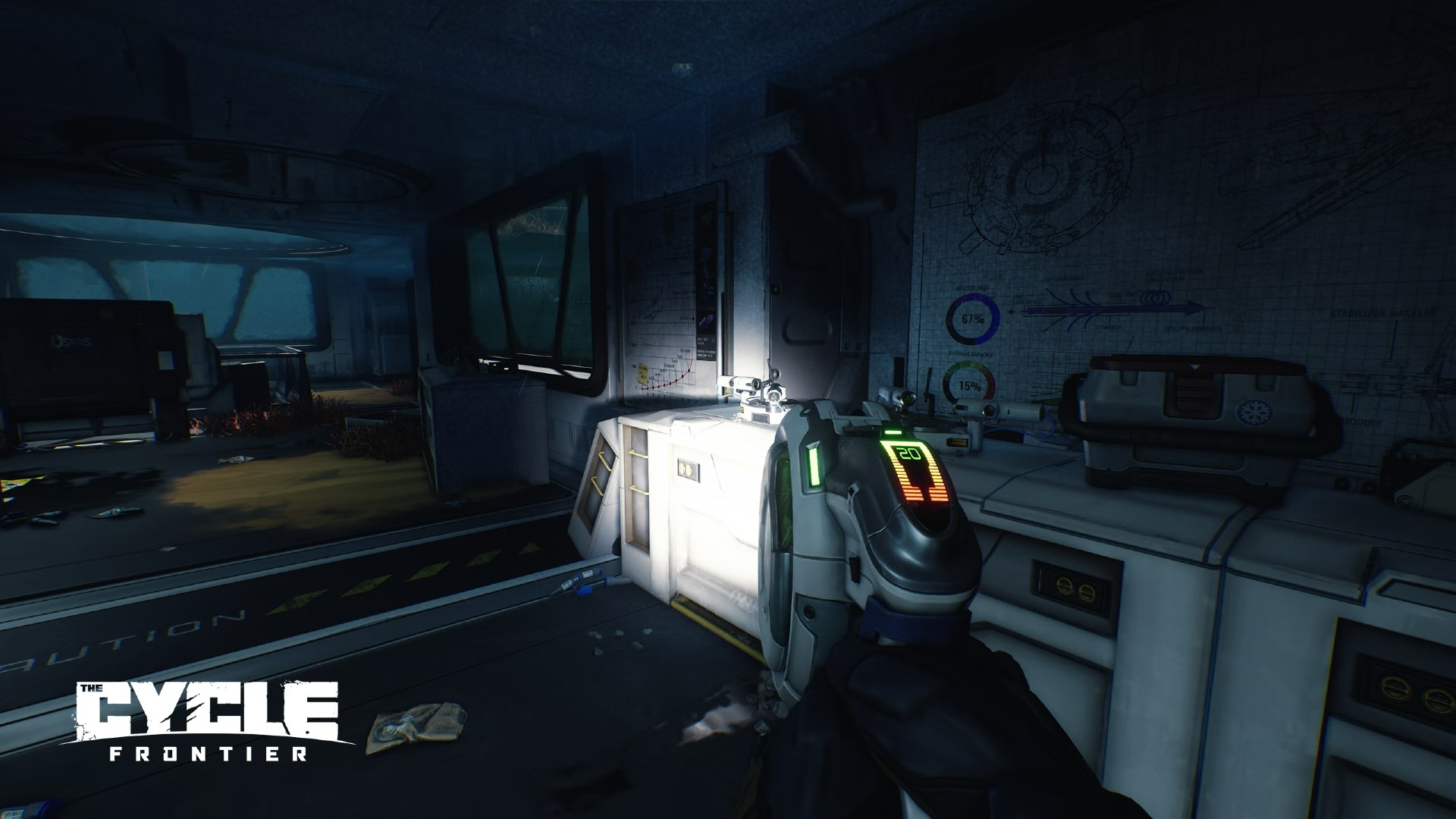The Cycle: Frontier is a nod to Escape from Tarkov with plenty of fresh ideas
The Cycle: Frontier continues to evolve the definition of the first-person shooter

My squadmate and I are camped in the long grass outside an abandoned base in The Cycle: Frontier. There were three of us at the start of our mission, but one of our comrades fell during the last raid – ambushed from behind by a white-skinned alien on all fours, slashed to death while looting a locker. These foes are tougher, we've come to learn, with a more insatiable thirst for blood. The building up ahead, so says our intel, is brimming with high-tier loot. And while we've already plundered this sci-fi forest biome for more goods than we could ever possibly need, there's no way we can miss this bountiful spot before extraction.
"I'm going in," says my partner. Without discussion, he breaks cover and makes a bee-line for the entrance. A bassy grunt breaks the silence, followed by panting and a high-pitched scream. An alien bursts from the shadows. I throw myself into action and begin unloading shell after shell from my B9 Trenchgun until the chamber clicks empty and the beast twitches in the mud. "You okay?" I ask my pal. And, just as I reach out to check him for wounds, my screen snaps to black. I've been sniped by a rival player, alerted to the melee by my maverick shotgun skills. I learn afterwards that my squadmate suffered the same fate seconds later. Which means we return to base with no loot whatsoever. Greed is a horrible thing.
Weather watching


Everything Announced at the Future Games Show Spring Showcase 2022
The Cycle: Frontier bills itself as a "high-stakes PvPvE first-person shooter driven by suspense and danger", and, after my short stint in its most recent closed beta, I'd struggle to put it better myself. Due to launch in full at some point later this year, the free-to-play online-co-op-driven FPS has strong Escape From Tarkov vibes in its looter-shooter routine, but definitely brings enough of its own ideas to the table to make it stand apart, not least its sci-fi trappings, extra-terrestrial enemies, and futuristic tech and resources.
Speaking to the latter first, factions play a huge role in progression in The Cycle: Frontier. You'll access three of those from the game's headquarters hub – the Korolev, the ICA, and Osiris – where you'll buy and sell weapons and resources, and will work through story-based campaign 'Missions'. Less formal 'Jobs' act as daily objectives as they might appear in other games, both of which are doled out by each faction's leader, and unlock rewards and experience points. Levelling up factions will grant you access to better weapons, equipment, and more advanced missions, as well as story tidbits that help flesh out each faction's place in the wider world and ecosystem of the game. Elsewhere in your base, Gear Printers let you modify your weapons; whereas your Quarters provide access to 'Income Generators' that offer different ways to make money.
Once you've familiarised yourself with all of this, it's time to travel to Fortuna III, The Cycle: Frontier's alien planet setting. Said to have been terraformed by its native creatures some time ago, devastating storm cycles now sweep its surface, meaning accessing its rolling plains, luscious greenery, and, crucially, resource-rich confines is only possible in short bursts. Which, of course, frames the game's structure as you're tasked with deploying during clear skies into one pocket of the map (Bright Sands or Crescent Falls in this closed beta), plundering the hell out of the land, and getting the hell out of there before the weather changes. Between other player groups (look out for snipers) and the planet's resident aliens (look out for white-skinned crawlers), though, getting in and out is hardly straightforward. Which means maintaining a constant dialogue among squadmates is absolutely vital – from the moment you touch down, until, assuming all goes to plan, you fly out with bulging pockets.
Combination play

"In its current state, The Cycle: Frontier pulls this mixture together succinctly and seamlessly, and I'm now looking forward to plundering the rest of Fortuna III whenever the game releases in full this year."
If my time in The Cycle: Frontier's closed beta is anything to go by, things will invariably not reliably go to plan. But that's the beauty of it. The cycle, as referred to in the game's title, is tied to the storms that sweep Fortuna III, however it could indeed be more widely applied to the nature of its excursions. You land and loot. Aliens hunt and stalk. You open fire and alert other players to your presence. And then they must decide how to react. Do they leave you be and worry about their own alien encounters? Or do they go after you and risk alerting other players? There's every chance the aforementioned sniper was taken out after head-shotting my pal. I hope they were.
And so if it's true that the last console generation left the FPS genre quicker, quieter, and more thoughtful, which I think it is, then The Cycle: Frontier is continuing to expand how we define the first-person shooter genre today. In the same vein as H1Z1 and DayZ, there are survival elements here. Like Escape From Tarkov and, to an extent, PUBG Battlegrounds, the looting and shooting archetype synonymous with the battle royale genre is stirred in too. There's even a whiff of EVE Online about it all, not just for its sci-fi trappings, but for the ways in which bad decisions, and bad luck, can cost you everything you've worked for – those moments when you've rolled the dice for extra loot, but have come a cropper to a player sniper while distracted by an especially fierce foe.
Sign up to the GamesRadar+ Newsletter
Weekly digests, tales from the communities you love, and more
In its current state, The Cycle: Frontier pulls this mixture together succinctly and seamlessly, and I'm now looking forward to plundering the rest of Fortuna III whenever the game releases in full this year. And if you're reading this, cowardly sniper guy, you're firmly in my sights the next time the storm cycle subsides.
The Cycle: Frontier, developed and published by YAGER, is due on an as yet undetermined date in 2022.
Our best FPS games list gathers the best from the genre.

Joe Donnelly is a sports editor from Glasgow and former features editor at GamesRadar+. A mental health advocate, Joe has written about video games and mental health for The Guardian, New Statesman, VICE, PC Gamer and many more, and believes the interactive nature of video games makes them uniquely placed to educate and inform. His book Checkpoint considers the complex intersections of video games and mental health, and was shortlisted for Scotland's National Book of the Year for non-fiction in 2021. As familiar with the streets of Los Santos as he is the west of Scotland, Joe can often be found living his best and worst lives in GTA Online and its PC role-playing scene.


